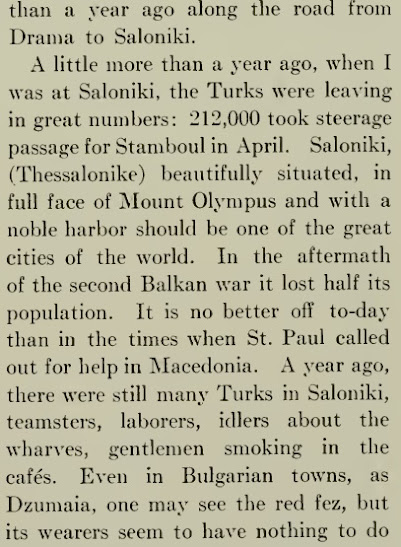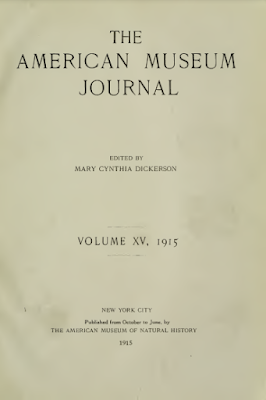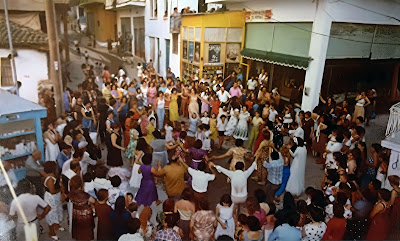Αναφορά στο Σιδηρόκαστρο και τους πρόσφυγες, 1915
Αναφορά στο Σιδηρόκαστρο και τους πρόσφυγες, στο American Museum Journal, 1915, v. 15
most of the towns between
Saloniki and Drama have suffered the same fate. Each of these towns has now its share of Greek refugees from
Turkish Thrace. These have been esti- mated by Greek authorities as numbering
300,000. They have come by railway
from Adrianople in box cars belonging
to the Greek Government. These cars are left at the various stations, a dozen
or more at each. In these the people
keep their bedding and their scanty
effects. The government of Greece
allows them two or three sous a day,
with rice which they cook on fires of
thistles and other weeds. I was told by one of these at Demir-Hissar that
their homes about Adrianople and Kirk
Kilisseh, were wanted for Albanian refu- gees from the Novibazar (now annexed
to Serbia), and that they were given by
the Albanians from two hours to four days to get out of Thrace. He summed
up the conditions in the Italian word
duro (hard). I was told also that a Turkish town near Nigrita (or possibly
Nigrita itself) had been turned over
bodily to Greek refugees, and that
rest of these would in time be placed on
farms abandoned by Turks and Bulgarians. Other Greeks, not refugees, were coming from Russian ports, at- tracted by the prospect of free land in Macedonia.
In a Turkish journal, vigorous complaint was made against the Albanian
refugees in Thrace as more "proficient
with the Mauser than with the plow,
and skillful only as cattle thieves." A
plea was made for bringing back the Bulgarian farmers as far more desirable neighbors. "The Bulgarians are now
our friends." In the larger towns, as Saloniki and
Kilkush, the refugees are ranged in tent
cities, ten thousand or more in one en- campment. There were perhaps sixty
thousand Greek refugees a little more
than a year ago along the road from
Drama to Saloniki. A little more than a year ago, when I was at Saloniki, the Turks were leaving
in great numbers: 212,000 took steerage
passage for Stamboul in April. Saloniki,
(Thessalonike) beautifully situated, in
full face of Mount Olympus and with a
noble harbor should be one of the great
cities of the world. In the aftermath
of the second Balkan war it lost half its population. It is no better off to-day
than in the times when St. Paul called out for help in Macedonia. A year ago, there were still many Turks in Saloniki,
teamsters, laborers, idlers about the wharves, gentlemen smoking in the
cafes. Even in Bulgarian towns, as Dzumaia, one may see the red fez, but
its wearers seem to have nothing to do
save to lie about in unoccupied lots or to
sit upon the steps of burned buildings. In Serbian Macedonia, the Bulgarian
is turned by force into a Serbian. If he
resists, he risks his life. His name is changed, as from Popoff to Popovitch,
from StephanofF to Stephanovitch. His
American Museum Journal, 1915, v. 15










